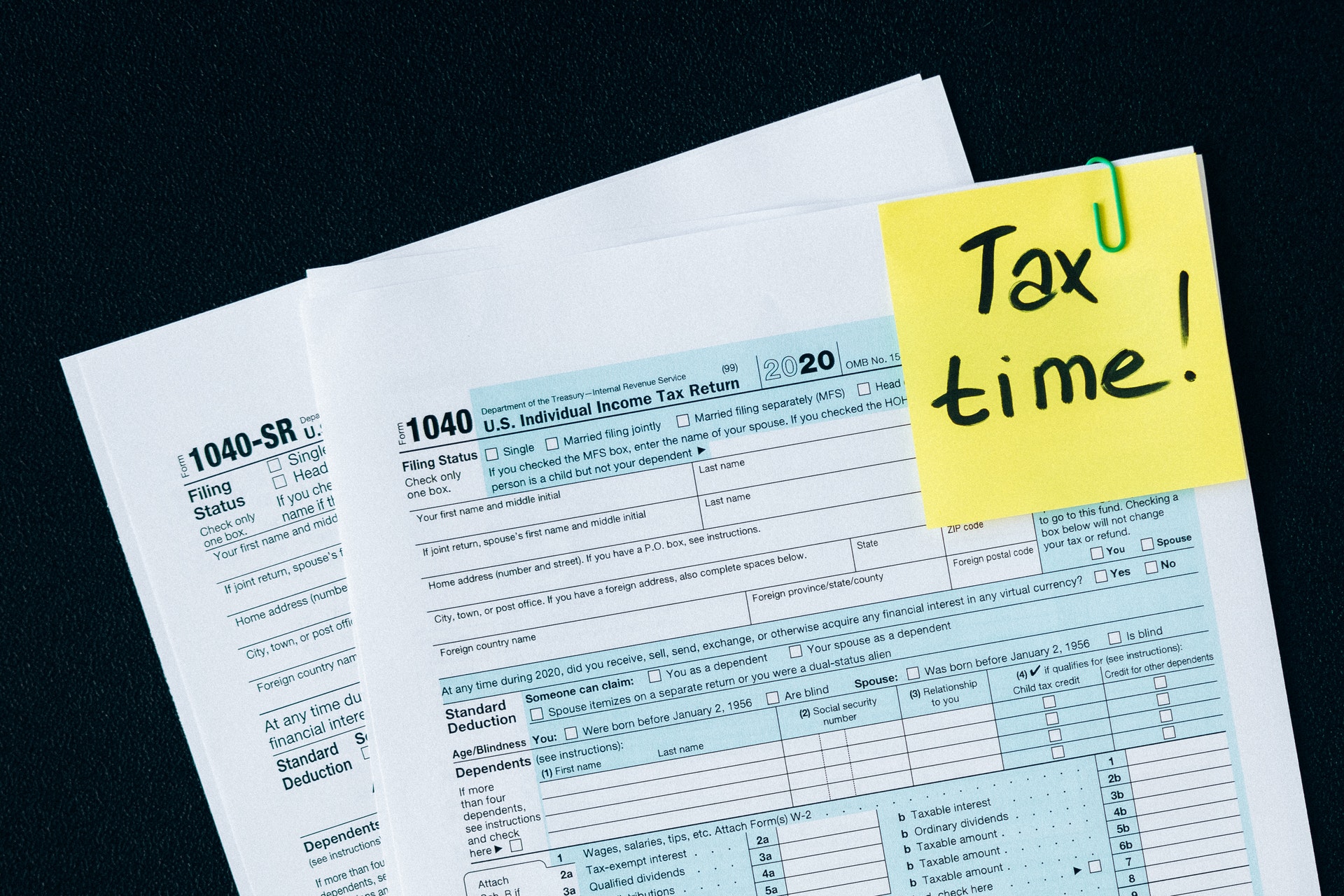Managing a short-term rental property and preparing for future investments is definitely no walk in the park, but when you add tax issues to the mix, the job of a short-term rental investor becomes even harder.
Thank you for reading this post, don't forget to subscribe!While you'll find plenty of clear-cut information about how to file your taxes as a full-time landlord, there is a lot more confusion, both online and offline, when talking about short-term rentals and their tax liability.
New investors looking to report their short-term rental income in their first tax year will quickly come across two main forms: Schedule E (for passive income holders) and Schedule C (for reporting active income).
The two forms are quite different from one another, so before you go ahead and start filing your first taxes as a real estate investor, it's best to understand whether your income can be classified as active income or passive income!
Like with all matters tax-related, we recommend enlisting the help of a tax professional to clear up any doubts and to ensure you submit your tax returns promptly and correctly — but that doesn't mean we don't have tips as seasoned investors to share with you to make the journey that much easier.
Here's how to report your rental income as a short-term rental investor in a way that will maximize profits in the long term!
What Is Passive and Non-Passive Income?
Before we get into the key differences between Schedule E and Schedule C forms, let's take a look at what passive and non-passive rental income actually mean for rental property owners.
In short, having your income classified as non-passive or active income implies that you are a real estate professional providing substantial services for a company you either own or work for.
You can generate active income by either receiving a salary or commission, which is usually the case for real estate agents and investors who have built a business with employees and clients.
House flippers and wholesalers who purchase a property with the aim of upgrading it and selling it in the short term also generate active income, as they provide substantial services by fixing properties and putting them back on the market.
On the other hand, having your real estate work classified as passive income implies that the money you are making comes mostly from dividends, interest, and yes, rental property.
Residential landlords make passive income by both collecting the rent from their tenants and profiting from appreciation once the property is sold.
Now you can see where the grey zone lies when you're a short-term rental investor: You could be generating active income by providing substantial services (hospitality) while at the same time acting as a residential landlord by investing in a property and collecting the dividends each month.
Schedule E vs Schedule C Explained
So, what form should short-term rental investors use when filing their tax returns, Schedule C or Schedule E?
Well, Schedule C is the form taxpayers have to fill out for active income businesses, while Schedule E is the one investors usually fill out for their passive income businesses.
By looking at the definition alone, you might not be too sure of what your Airbnb property would be classified as, as plenty of active work is involved for marketing and managing each investment and, at the same time, you are not receiving a salary or commission for your work but collecting rent (albeit short-term) instead.
Well, here's a piece of good news: As a vacation rental owner, you might be able to pick and choose the benefits of both while only using one form. It really depends on how you choose to run your rental business!
In fact, while rental income is automatically classified as passive income by the IRS, investors who qualify as real estate professionals or fit exceptional circumstances can use the benefits of Schedule C to their advantage... but don't get too ahead of yourself just yet, we'll expand more on professional vs non-professional investors in our next section!
Pros and cons of Schedule E
The biggest advantage of filing your tax returns under Schedule E (the passive income report that generally applies to rentals) is that you won't be required to pay self-employment taxes on the income reported.
Considering that self-employment is currently taxed at a hefty 15.3% of your income, you can see why many investors choose to file their reports as 100% passive.
But here's the biggest disadvantage of filing the Schedule E form: You'll be greatly limited when it comes to writing off tax losses, meaning that the considerable benefits of depreciation will be out of your reach.
You can only write off losses up to your passive income, while the rest will be suspended and continue pooling without any passive loss tax benefits to take advantage of.
Pros and cons of Schedule C
On the other hand, the key advantage of filing under Schedule C is that you'll get to write off losses of up to $25,000 against your active income immediately, dramatically lowering your tax burden and generating more profit in return.
The catch is that you'll be subject to self-employment tax, which could eat into your profit if you're not calculating all your moves right.
Real Estate Professional vs Non-professional
So, as a general rule of thumb, all rental income classifies as passive and is required to be filed under Schedule E, leaving traditional landlords with no way of writing off their tax losses in the short term.
The only exception is when the landlord qualifies as a real estate professional, meaning that the majority of their time is spent actively working in the real estate industry, clocking in at least 750 hours per year.
So, where do vacation rental investors fall in all of this?
According to Treasury regulations, vacation rental owners who rent their property out for seven days or less on average do not fall under standard rental regulations, meaning that they'll be able to file their income as non-passive instead, without worrying about qualifying for professional status.
In the eyes of the law, in fact, investors who fall under the seven-day exception are not running a rental business at all!
This means that investors looking to maximize their rental income can keep their full-time jobs, expand their portfolio, and not clock in any minimum hours while benefiting from depreciation tax write-offs — as long as they are materially participating in the business, of course.
So, if you are actively managing and marketing your short-term property and qualify for the seven-day exception, you'll be able to use your yearly tax losses to offset your business income and any other income, even if you work a day job.
So finally, should you reach for Schedule E or Schedule C when the end of the tax year comes around?
While you'll be able to claim the biggest benefit of the Schedule C form as a vacation rental owner with seven days or less occupancy, experts recommend using the Schedule E form unless you are providing substantial services to your guests.
Most short-term rentals won't qualify as hospitality businesses, but they can qualify as real estate professionals or non-rental business owners and still get all the depreciation benefits!
Your Guide to Rental Income and Taxes
When you're investing in your very first short-term vacation rental, your first few years of operations are going to be an endless learning curve — even experienced investors make errors when it comes to filing their income and expenses!
The world of short-term rentals is still a grey zone for many legal matters, so you should make sure to stay up to date with any new regulation coming in.
If you want to get all the information you need in one place, whether it's about your tax situation as a vacation rental investor or how to boost your profits, why not check out our podcast to hear it all from the experts?
New and seasoned investors are welcome to browse our free resources to scale their business and find new profitable opportunities in some of the country's hottest short-term rental markets, so get in touch today to open up new possibilities!


